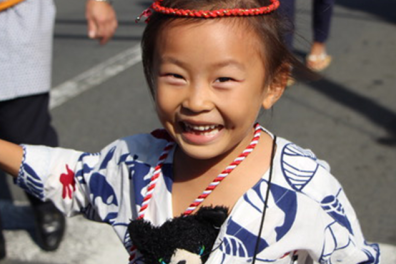Creation of an interdisciplinary association for Japanese ethnography

Interdisciplinary association Ethnographies japonaises
Ethnographies japonaises, founded following a first study day (March 2020) devoted to ethnographic inquiry in Japan, brings together researchers belonging to various institutions, in France and outside France. Led by Jean-Michel Butel (IFRAE, Inalco) and César Castellvi (CRJ, EHESS), it is supported by major French research units: the French Institute for East Asian Research-IFRAE (Inalco-Université de Paris-CNRS), the Japanese Populations group (IFRAE/CRCAO) and the Centre de recherche sur le Japon-CRJ (EHESS).
This association is open to students, masterants and doctoral students, who are destined for ethnographic work, as well as to anyone interested in its aims and wishing to keep abreast of the many works carried out in the Japanese field.
Objectives
- To promote an ethnographic approach to the Japanese field
- To federate researchers adopting such an approach
- To report on each other's work
- To support young researchers by giving them an opportunity to discuss their work and integrate into projects projects with other researchers
- Strengthen the methodological training of master's and doctoral students in Japanese studies
- Be an incubator for projects
All the association's activities are presented and disseminated in the carnet Hypothèses Japanese land. This research notebook also offers various resources: selections of online articles and conferences, videos, bibliography and filmography, as well as biographies of ethnographers and their fieldwork.
Japanese Ethnographies will organize annual meetings, seminars and thematic study days on a more ad hoc basis.
Fenêtres sur le Japon: un festival de films documentaires
In partnership with the CRCAO (Université de Paris-Collège de France-EPHE-Cnrs), a first project has just seen the light of day: the creation of the festival de films documentaires Fenêtres sur le Japon, the first edition of which will take place in Paris on December 3 and 4, 2021.
This festival aims to be "a contribution to the persistent dialogue between two worlds - cinema and social sciences - starting from an anchor point: Japan. (...) Both offer a look at the social world based on "fieldwork", i.e. a more or less lengthy presence with the people or in the places depicted in the texts or films."
Discover the programming.
Terrains japonais - Rencontres de l'Association interdisciplinaire des ethnographies japonaises 2022
IFRAE and CRCAO are launching the call for papers for the 1st edition of the Rencontres 2022 to be held on Thursday 24 and Friday 25 March 2022 at Inalco and Université de Paris.
Beyond disciplines and objects, ethnographic practice constitutes an effective and specific approach to deepening analysis of contemporary Japan. The Association interdisciplinaire des ethnographies japonaises aims to be a space of exchange for researchers in Japonology using field practice as part of their research. The Rencontres have a number of objectives: to take stock of recent survey results and upcoming projects; to initiate new collaborations; to open a window for students interested in applied ethnography in Japan; to explore questions about the ethnographic method; and to share "tricks of the trade".
These two days, with Fujita Yuiko, Professor of Sociology at Meiji University, as guest of honor, will be structured around a workshop to present participants' work. They are open to all, young and veteran researchers alike, provided that ethnography - understood here in the sense of the use of participatory or non-participatory observations, in Japan, over a regular period of several weeks - plays a central role in their research.